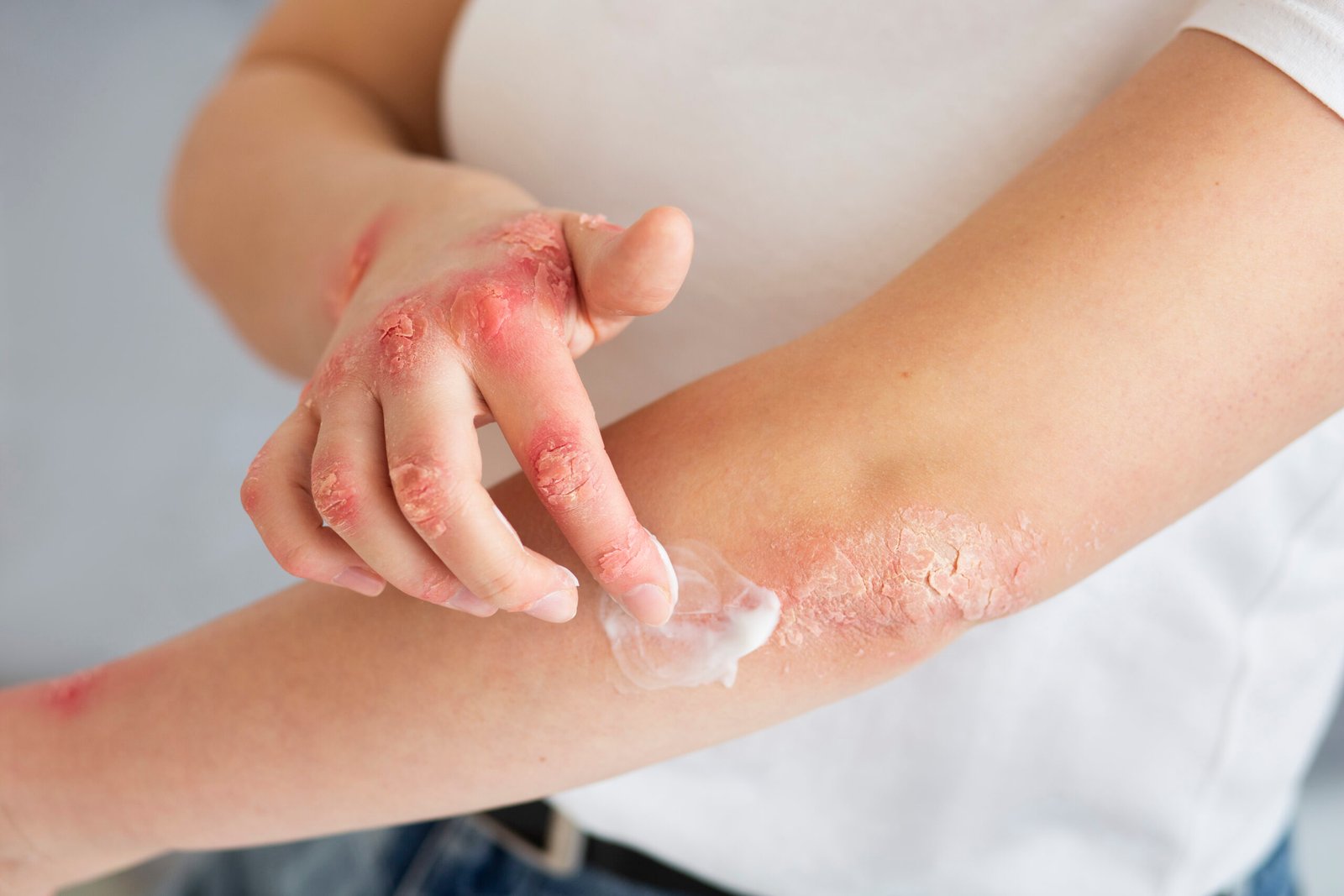One somewhat prevalent immune-mediated skin disorder is psoriasis. It results with skin that gets dry and crusty in places, usually on the knees, scalp, elbows, and back. On light skin, these spots seem red, whereas on dark complexion, they may appear violet or purple. It is challenging to determine the precise prevalence of psoriasis worldwide. But according to a 2020 study , the incidence varies by region, with 1.99% in Australasia and 0.14% in East Asia. Psoriasis can have an impact on a person’s quality of life and general well-being in addition to its physical manifestations. In a similar vein, stigma affects some psoriasis sufferers. According to one study : People in the India frequently have stigmatizing beliefs about those who have psoriasis. Public awareness efforts and medical student education programs could lessen the stigma associated with psoriasis. In light of this, we address some enduring misconceptions about psoriasis and enlist the assistance of MediDocs specialists to refute them.
The psoriasis is communicable
This is a widespread myth, but it is still just that—a myth. Psoriasis cannot be contracted. It’s an autoimmune disease in which the body overproduces skin cells due to an improper immune response It cannot be spread through direct contact between individuals or through the exchanging of bodily fluids, such as kissing or sharing food or beverages. Additionally, it cannot be acquired by people in close quarters in public places like saunas or swimming pools.
Just dry skin is psoriasis.
That’s not all there is to it. In psoriasis, the skin turnover can occur as quickly as 4-5 days, but in normal skin, it occurs around every 28 days. This rapid reversal has prevented the skin cells from maturing. They accumulate into thick scales that the body is unable to normally shed. Blood vessels also change and move closer to the surface, which causes the areas, if scratched, to bleed, becoming very red and sore. Psoriasis on the hands or feet can cause difficulty with daily activities, and psoriasis on the buttocks or groin can cause pain even when sitting down or using the restroom.
Psoriasis comes in only one variety.
Many people believe that there is just one type of psoriasis and that it is always present. That isn’t the case, though. The most common type is large plaque psoriasis with typical thick silvery scales.” Additional varieties consist of:
- Because of the tear-shaped scaly patches, guttate psoriasis is frequently referred to as “raindrop psoriasis.”
- Only areas that come into contact with other body parts, such the groin, underarms, or armpits, can develop inverse psoriasis.
- Erythrodermic psoriasis: This rare kind of psoriasis causes a rash that peels over a large portion of the body.
- Pustular psoriasis: This kind typically affects the hands and feet and causes pus-filled pimples to appear.
Psoriasis results from poor hygiene
Having psoriasis does not imply that a person has poor hygiene. In actuality, individuals with psoriasis typically need to practice strict self-care because their skin is so sensitive and dry that it requires ongoing attention. Additionally, while psoriasis patients frequently need to apply their medications twice daily, people will spend a great deal of time managing it, particularly [in] areas such as the scalp, because if it is left, it will become very difficult to manage very quickly.
Psoriasis is curable by doctors
This is untrue as well because there isn’t a treatment for psoriasis at this time , research into the illness is still ongoing, and this new knowledge may lead to a cure at some stage in the future. Crucially, doctor and dermatologist can offer a wide range of treatment options, and psoriasis can be successfully treated and managed.
Psoriasis just impacts the epidermis
Although psoriasis primarily affects the skin, it affects more than only the skin. Psoriasis is not limited to the skin. Psoriatic arthritis, defines as “an inflammatory arthritis that affects the joints,” is thought to develop in 6–42% of individuals with psoriasis. It frequently affects the knees, hands, and feet joints, as well as the lower back and heel, which are places where tendons join bone. Psoriasis can affect a person’s mental health in addition to their physical health. Anxiety, depression, low confidence, and self-esteem are also more common in people with psoriasis, and they can all have a significant impact on day-to-day life.
Only adults can get psoriasis
While psoriasis is most frequently observed in adults—it typically begins in adolescence and lasts a lifetime—it can also occasionally be observed in infants. There seem to be two ‘peaks’ of onset: from the late teens to early 30s and between the ages of about 50 and 60.
Conclusion-
Dispelling misconceptions about psoriasis is crucial for fostering understanding and support for those affected by this immune-mediated skin disorder. By debunking myths such as its contagiousness or association with poor hygiene, we empower individuals to seek proper care without fear of judgment or stigma. MediDocs stands ready to provide comprehensive support and medical guidance to those living with psoriasis, promoting holistic well-being and improved quality of life. Take the first step towards better management of psoriasis with MediDocs today.


